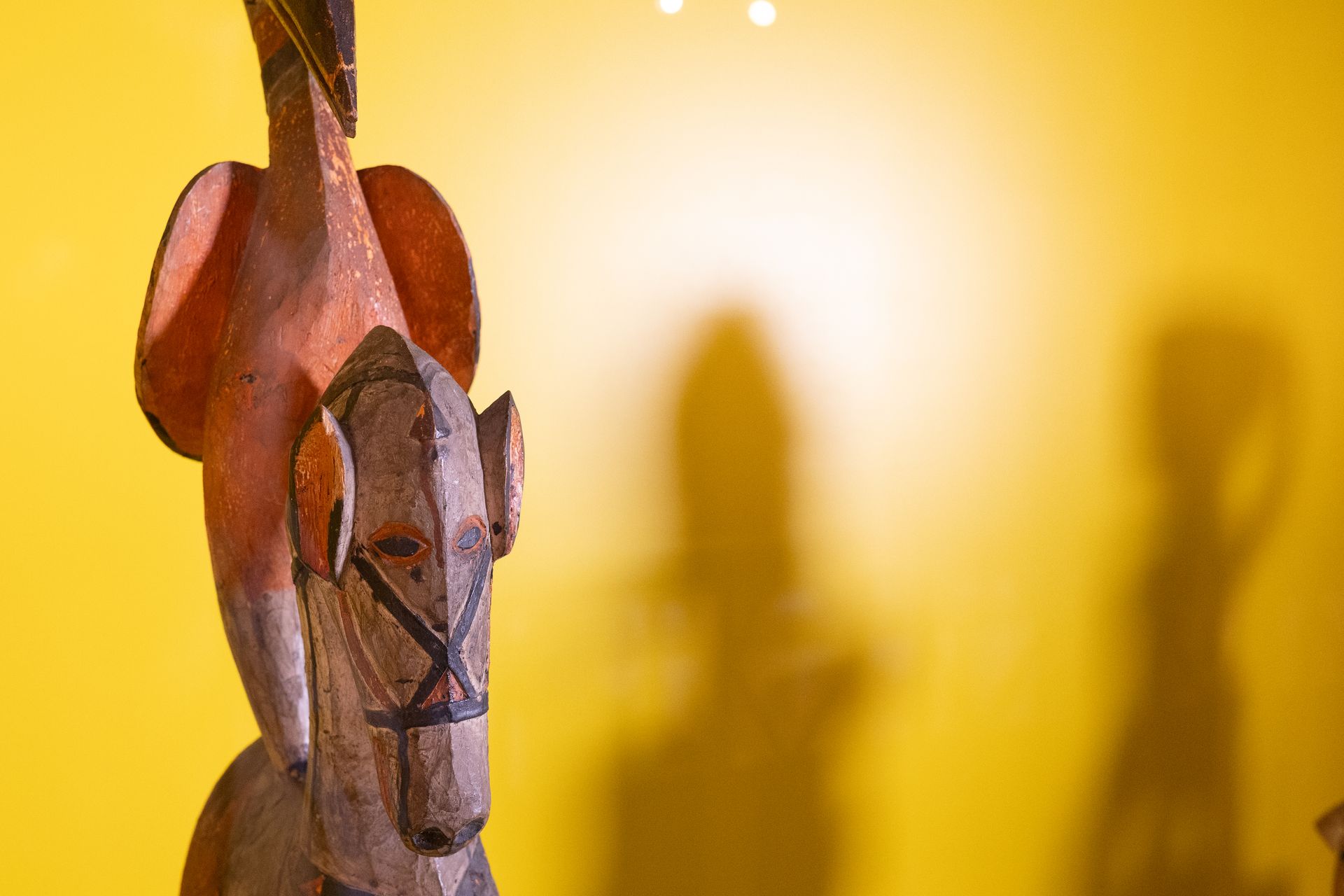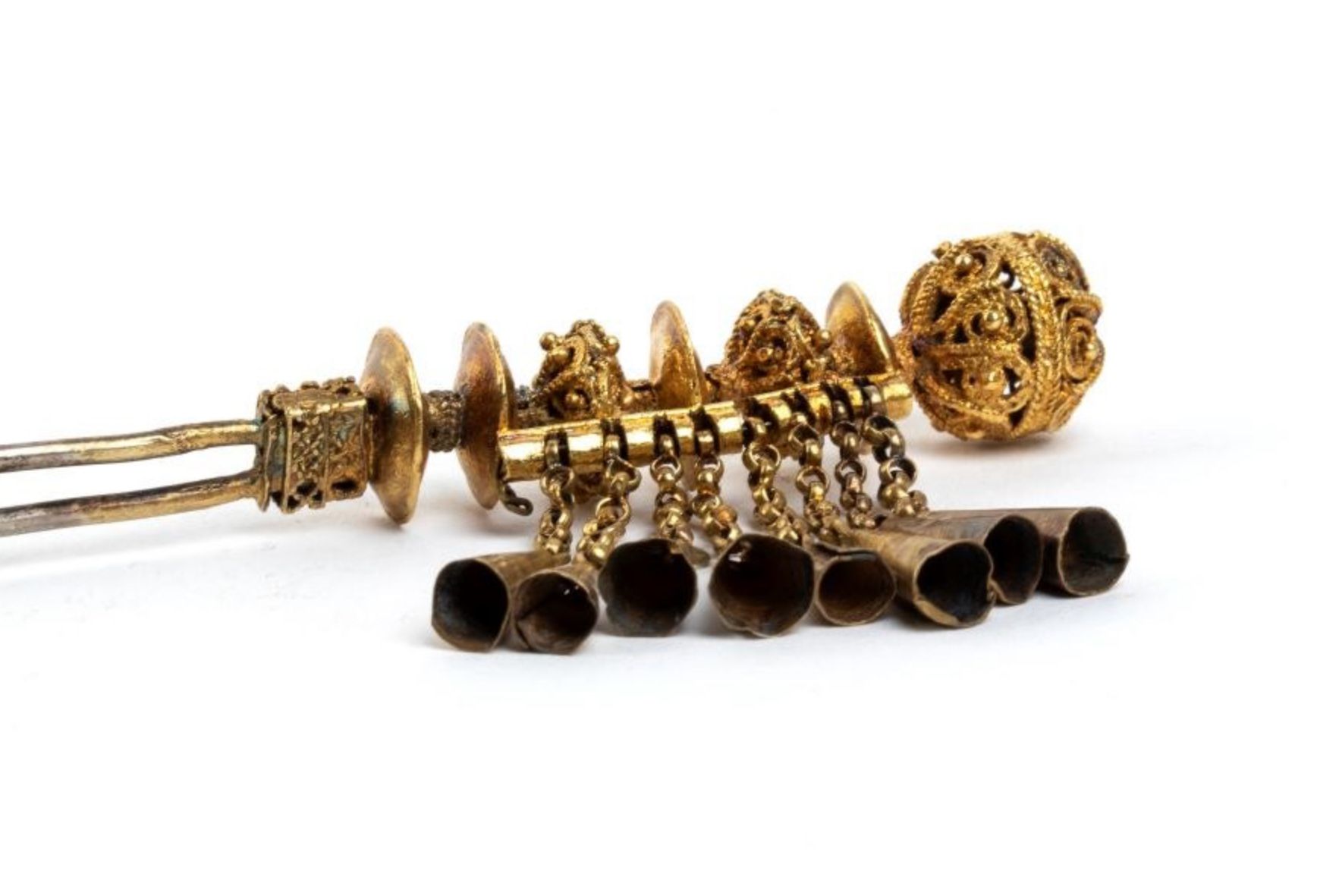Cultural Restitution
SHARE ARTICLE
Jesus College, Cambridge has announced a date for the return of their Benin Bronze statue of a cockerel, known as an ‘Okukor’. At the same time, the German government has signed a memorandum of understanding with Nigeria’s National Commission for Museums and Monuments, setting out a timetable for repatriating their Benin artefacts in German state collections.
Objects returned as a result of both these initiatives are likely to end up in the proposed new Edo Museum of West African Art (EMOWAA), rather than another museum option favoured by the present Oba of Benin, Ewuare II.
The campaign to return the bronze cockerel, an object which has sat on a wooden plinth at one end of Jesus College’s dining hall since 1905, was launched by two university students in 2015. Their efforts garnered support for repatriation from the student community as a corrective for the past wrongs committed against the Benin kingdom.
The College’s Legacy of Slavery Working Party (LSWP), set up to examine how the College may have profited from the slave trade, arrived at the same conclusion in 2019 when Sonita Alleyne OBE, the College’s new Master, declared ‘It is not, and never has been, owned by the College’.
Nigerian delegates attending next week’s handover ceremony at Jesus College on 27 October are hopeful it could set in train further restitutions from UK collections.
“We thank Jesus College for being a trailblazer,” said Alhaji Lai Mohammed, Nigeria’s Minister of Information and Culture, “and we look forward to a similar return of our artefacts by other institutions”.
Jesus College’s return of the cockerel would be the first repatriation of a Benin Bronze by a UK institution since the British Museum’s deaccessioning of several bronzes in the 1950s.
Professor Abba Isa Tijani, the Director-General of the National Commission for Museums and Monuments is equally optimistic about future returns: “We hope that it will set a precedent for others around the world who are still doubtful of this new evolving approach whereby nations and institutions agree with source nations on return without rancour”.
Meanwhile, in Abuja this week Andreas Görgen, culture head at Germany’s Foreign Ministry announced the memorandum of understanding he has signed with Nigeria’s National Commission for Museums and Monuments will take Germany one step nearer “shaping the future of cultural policy relations with Nigeria.”
Like the agreement announced by the British Museum in November 2020, Germany will provide support for joint projects in archaeological fieldwork and education. It will also provide financial assistance for the development of the new EMOWAA, which is to be located adjacent to the original Oba’s Palace.
Germany’s previous statement about their willingness ‘in principle’ to transfer actual ownership of their Benin artefacts to Nigeria rather than long-term loans, was made earlier this year – but it lacked a timetable. This new agreement envisages that returns to Nigeria will start in the second quarter of 2022.
There are around 1,100 Benin artefacts across 25 different German state collections. The Ethnological Museum of Berlin holds the second largest collection of Benin artefacts in the world (around 520); the British Museum holds the largest (around 900). However, the Nigerian government has stipulated in this week’s memorandum, which will be followed up by a formal contract later this year, that some of the bronzes can remain on display in German museums.
Prof Hermann Parzinger, Director of the Prussian Cultural Heritage Foundation, has said he hopes this cooperation “will be a pioneering model for handling colonial looted art.”
Recently, a growing dispute has arisen over where the returned bronzes should be exhibited. In the short term, it’s understood they’ll be housed in a pavilion designed by Tanzanian-born British architect Sir David Adjaye. In the longer term, the fact both Germany and Jesus College are publicly recognising the roles played by the Nigerian government and the National Commission for Museums and Monuments for securing these agreements suggest they support their permanent exhibition at the new EMOWAA.
The present Oba of Benin indicated in July this year that he wanted all these objects to be housed in his own Benin Royal Museum and not in the EMOWAA. But speaking about the recovery of the Jesus College cockerel, he appears to have thrown his support behind the contribution of Nigeria’s President Buhari and the National Commission for Museums and Monuments, “for their renewed efforts in securing the release of our artefacts on our behalf.”
Perhaps the momentum and financial support from major collections of Benin material building up behind the new EMOWAA is now too great for him to ignore.
Photo: A Benin Bronze statue of a cockerel
Courtesy of Chris Loades
More News



